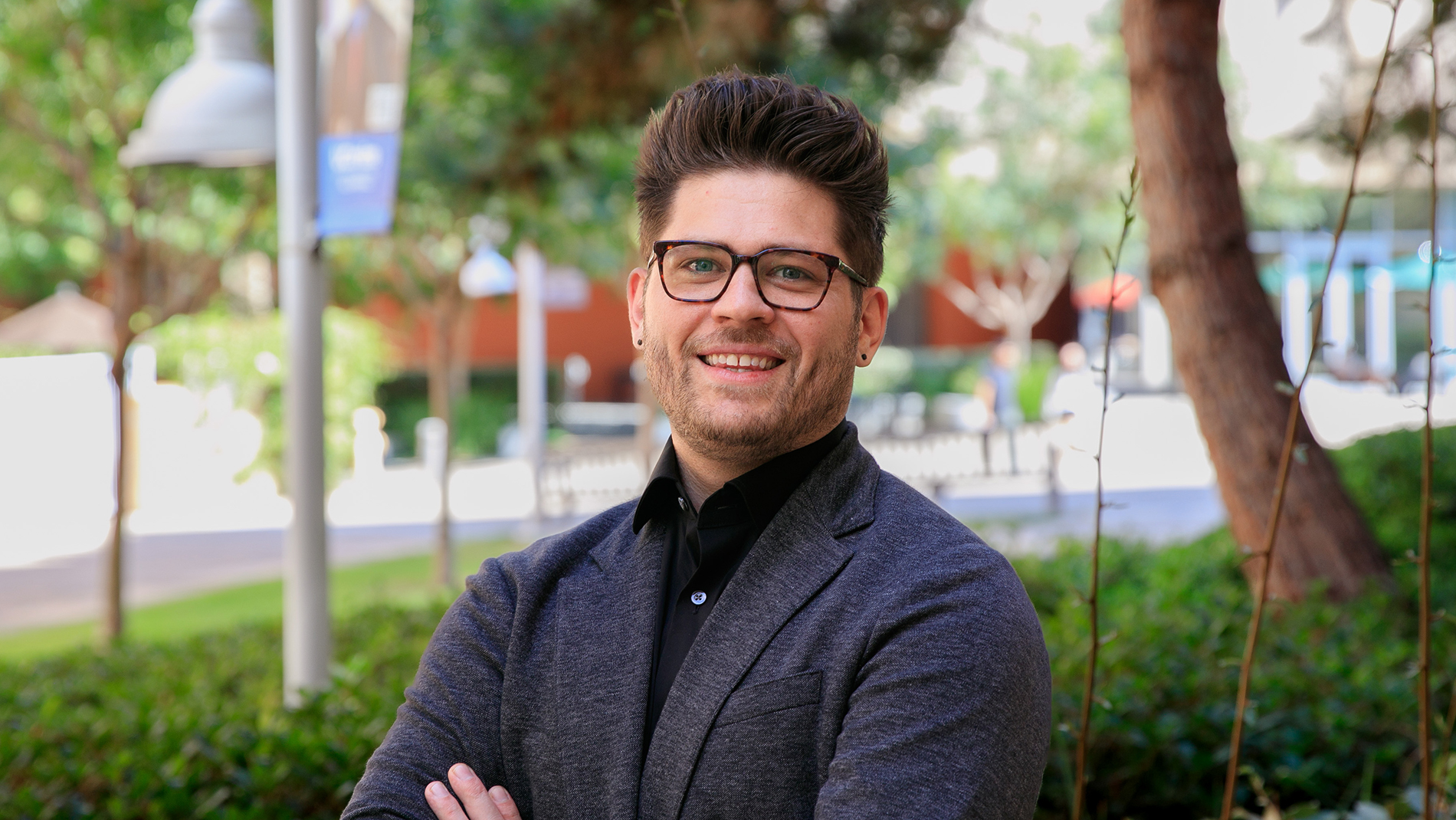
Spatial data scientist Eli Knaap joins urban planning & public policy faculty
That UC Irvine has a School of Social Ecology is all it took for new Assistant Professor Eli Knaap to jump at the chance to join the Department of Urban Planning & Public Policy faculty.
“Social ecology is one of the main attractions of this university,” he says. “This is the first and only school of social ecology in the country. But, to me, it really means taking an interdisciplinary approach to urban systems, which is what I study.”
Specifically, Knaap takes the three social sciences he was trained in — sociology, economics and geography — and, as he explains, “try to triangulate those with computer science and public policy to make a difference in cities.”
His research involves two main areas: urban structure (“I focus mainly on neighborhoods [where] I try and understand social and racial inequality”) and methods (“I do spatial analysis, spatial econometrics, and I develop new computational tools for trying to understand where things are in cities, where things could be, and where we might put them to reduce inequality”). Knaap’s tools are distributed as part of two open-source software ecosystems, the Python Spatial Analysis Library (PySAL) and QuantEcon.
His educational path has taken him to several cities where he’s been able to apply his science. Originally from the Washington, D.C., area, Knaap earned his B.A. in sociology, master of community planning and doctorate in urban studies and planning at the same institution: University of Maryland, College Park.
During his Ph.D. years, from 2013 to 2016, he headed up the Spatial Analysis Lab in the university’s National Center for Smart Growth, and after attaining his doctorate, he was the Bart Harvey Postdoctoral Research Fellow at Enterprise Community Partners, a national nonprofit dedicated to increasing housing supply, advancing racial equity and building resilience and upward mobility. Knaap later returned to the University of Maryland as an adjunct professor of urban studies & planning and information studies.
From 2017-18, he was a visiting assistant professor of urban planning and public affairs at the University of Illinois, Chicago. He arrived in Southern California later in 2018 — and hasn’t left since.
“One of the things I think is most rewarding about being here is the incredible cultural diversity that we have in Southern California,” Knaap says. “It’s one of the things that you get really spoiled by, being in a place as cosmopolitan as our nation’s capital, but this is one of the few places in the country that can really compete in terms of both the people who you are exposed to and the kind of work that you’re able to do. So, I feel incredibly lucky to be here.”
Knaap’s first SoCal stop was UC Riverside, where he served as a postdoctoral research associate and later associate director of the Center for Geospatial Sciences (public policy) through 2022. He then moved to San Diego State University as a senior research scientist and associate director of the Center for Open Geographical Science (geography). Knaap remained at SDSU through this past June, joining UC Irvine on July 1.
He is the co-principal investigator of a current National Science Foundation grant that he brought to UC Irvine and is designed to help foster the growth and adoption of open source and open science. Knaap also has a book on Urban Analytics and Spatial Science that’s currently under contract and should be finished within the year.
Speaking of projects, he will be growing his young career as he grows his young family.
“My daughter is seven months old … so that’s consuming a great deal of my time, especially being a new faculty member and moving up to a new city,” says Knaap, who obviously considers it a welcome challenge.
“One thing that’s unique about this school is that, apart from being interdisciplinary social science, there’s a real charge to be engaged into community-engaged scholarship,” he says. “It’s incredibly important when you’re in public policy to make a difference in your community and be part of the topical conversation. I really look forward to being able to shape urban policy here in the region and in the country.”
— Matt Coker
Photo by Han Parker
Learn more about Eli Knaap, his academic work and his projects at his website: knaaptime.com.